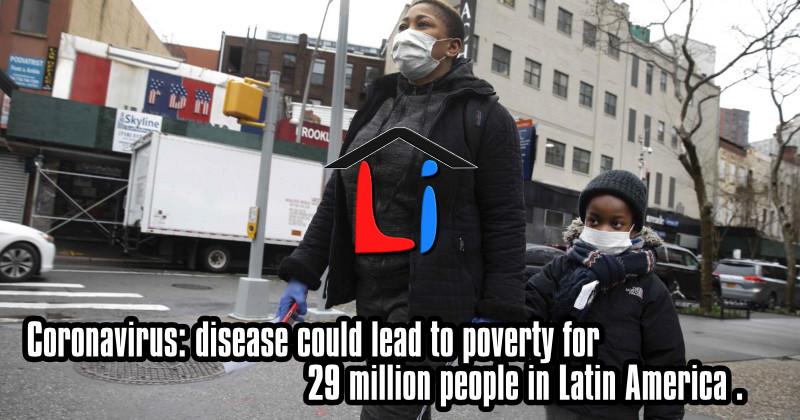Several Latin American countries have announced their forceful reactivation measures, but apparently they would not be enough.
The situation we are experiencing due to the coronavirus will leave Latin America with consequences. The GDP (Gross Domestic Product) of the region will fall an estimated 5.3% in 2020 and will be the worst crisis in its history, according to an analysis by the Economic Commission for Latin America and the Caribbean (ECLAC) regarding the impact of the coronavirus published this Tuesday as reported by the newspaper El País.
Having had to stop economic activities threatens to cause, in turn, an increase of 4.4% in the poverty rate and 2.5% in the incidence of extreme scarcity. In summary, this poverty hole will absorb almost 29 million people.
The jump of previous years regarding unemployment rates will be exponential this 2020, from 186 million poor in 2019, it will go to 214.7 million this year, within this figure, we have people living in extreme poverty who they will go from 67.5 million to 83.4 million.
It is the repercussion of a contraction of 5.3% of GDP is the definitive action for a region that has just closed the five-year period of slowest growth in more than half a century. “Since 2014, the region has grown at averages of 0.4%. The beginning of this crisis will create a very delicate situation for us ”, this is how the ECLAC executive secretary, Alicia Bárcena, warned at a press conference from Santiago de Chile.
Through the fall in international trade, one of the transmission channels for the turbulence will come from abroad. The value of Latin American exports will decrease by 15%, as will the volume of trade, which will contract by 6%. It is the halting of economic activities in China the particular blow to the economies that sell raw materials, such as Brazil, Peru, Chile and Uruguay, with more than 20% of its exports to Asia.
It is true that several Latin American countries have disclosed their forceful reactivation measures , including tax relief and credit guarantees. However, the agency estimates that they will not be enough. “It is not enough with what they are doing and they are going to require more financing,” warned Alicia Bárcena.




